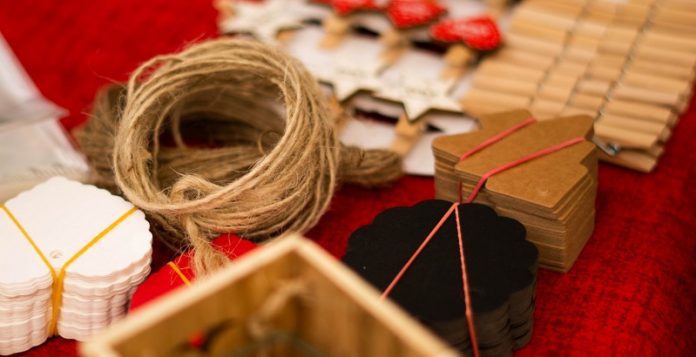
Q: Many of the catechists in our program use their own financial resources to purchase things for their classrooms and students. One catechist in particular who is “comfortably off” buys special things for her students for all the holidays. She also buys special classroom supplies and creates fabulous craft activities with fancy supplies. She’s so enthusiastic about teaching, and it’s clear that her students learn a lot and like her class a lot. But some students not in her class—and a few catechists—are expressing resentment. How can I help this catechist find a middle ground without being critical?
—Donna, DRE in Kansas
CHRIS WEBER RESPONDS
I certainly can understand why you would be anxious about sending anything less than an encouraging message to such a charitable and enthusiastic catechist. However, I also echo your concern for how this untrammeled generosity could deflate morale among your catechists! I would hate to ask your catechist to tone down or stop what she is doing.
Where possible, it is always better to grow your program than to deplete it. Perhaps you can use your catechist’s creativity and stewardship as an inspiration to bolster the quality of all of your sessions.
How does this sound to you? “(Name of catechist), I love all of the fun and creative projects you do with your class. And many of your students tell me that they love it, too. You make learning about faith fun, and you give so generously of your time, talent, and treasure to your young people. This is terrific!
“As much as I love it, it has created a big problem: Kids in other classes are pretty envious of what your kids are doing, and other catechists are, too. I don’t want to see you stifled in what you are doing. It’s great! But I wonder if you could brainstorm with me some ways we could enhance what other classes do to make their experience more fun and dynamic.”
As you talk about the situation, you may well come up with some creative ways to ease it. Here are a few strategies you might consider before your conversation with the catechist:
1. Invite her to be a team leader or craft resource person. Are the people who are complaining also teaching similar grade levels as your catechist? If so, ask her if she would be willing to occasionally design a craft or holiday project for her entire grade level or unit. Make sure that she knows the parish will cover the cost of the other classes—and inform her that this is a condition of the request. You may need to set a cap for the expense, but you could also justify the cost as a return for all the money the parish has saved over the years because of her generosity. Get other catechists to assist with the purchase of supplies and set up so that they have ownership in the project. Encourage them to work on the project as a team. This strategy would ease the tension and enhance the experience for everyone.
2. Find some extra money to bring some of the same types of perks and special crafts to other parts of your program. If you don’t have it in your budget, there is often a group like the Knights of Columbus or other service groups that are eager to support quality catechetical experiences for children. This could take some preparation, as you may need to devise and spell out a very concrete plan to get the support. If you think of this as a private “grant,” then do many of the things that grant writers do: document the plan, take photos of the special project or craft, write up a report on how it went—along with participant testimonials—and be sure to send a big thank you to the grantor.
If you implement either of these strategies, you can thank this faithful and bighearted catechist for the inspiration!
DAN THOMAS RESPONDS
This is one of those “sticky” issues that are often part of the challenge of being a catechetical leader.
First, express to the catechist how wonderful it is for those children to be in a class with a catechist who is excited about the ministry and wants to make learning about the faith exciting and meaningful. Her creativity and personal investment are great gifts to the program. This is something to celebrate!
Second, consider the impact of her generosity on the other catechists. One element of a response is to recognize that each catechist has different gifts and talents that need to be used and recognized for the contribution that they are. The catechists need to do well what they can do well and not compare themselves with one another. Help them to celebrate what they do well. One of the difficulties in any group is the impact of people on one another. The challenge here is to create a community of people that respect diversity and recognize one another’s gifts.
Another issue that is raised here is the budget for the program. In my experience, parish catechetical programs are often run on a shoestring. Is there a way that gifts can be budgeted for all students? At our parish, every volunteer is given a box of premium cocoas each Christmas and they seem to enjoy this simple gift. Is there a similar type of gift that could be given to the children in the program?
Also, it may be valuable to talk with the catechists as a group about gift-giving in general: How do you feel about giving gifts to your students? How necessary is it? How does giving gifts to one another and our students influence our program? Do the children have expectations about receiving gifts from their catechists? The group might come up with a way of giving gifts to everyone, or a way in which the true meaning of gift-giving might be celebrated.
To sum up, what happens in each classroom must be based on the gifts and creativity of each catechist. We need to create an atmosphere of genuine community that allows for the unique gifts of each. But we also need to create a community among the learners that can “gift” them equally for the persons they are. This is a difficult balancing act not easily achieved but well worth working toward.
Chris Weber has worked in the field of catechesis for over 20 years: as a catechist, a parish catechetical leader, and a diocesan staff member. He is currently Director of the Mount Summer Program at Mount St. Mary’s University in Emmitsburg, Maryland.
Dan Thomas has been a DRE for more than 28 years and is involved in the National Conference for Catechetical Leadership (NCCL).
This article was originally published in Catechist magazine, February 2010.
Photo by Joseph Balzano on Unsplash




